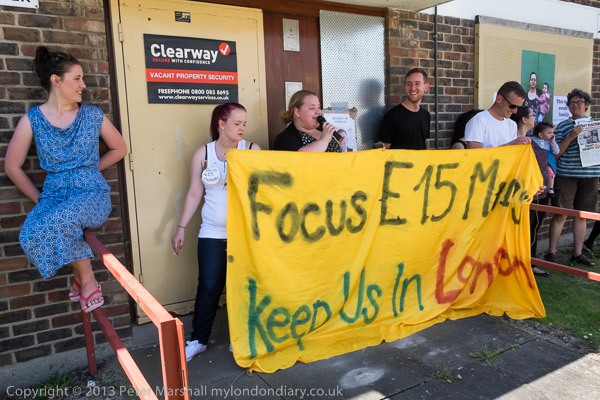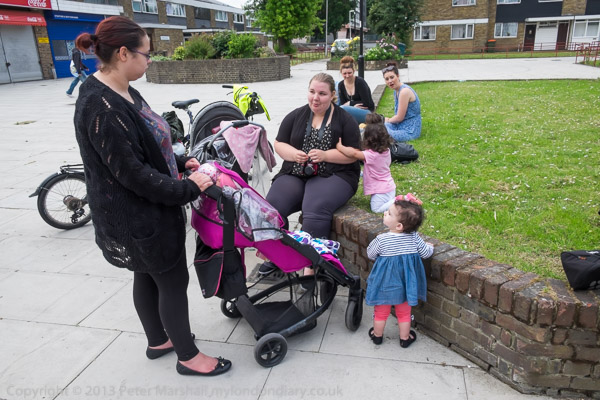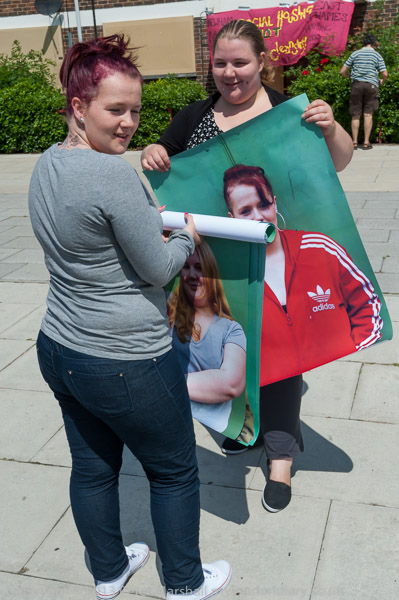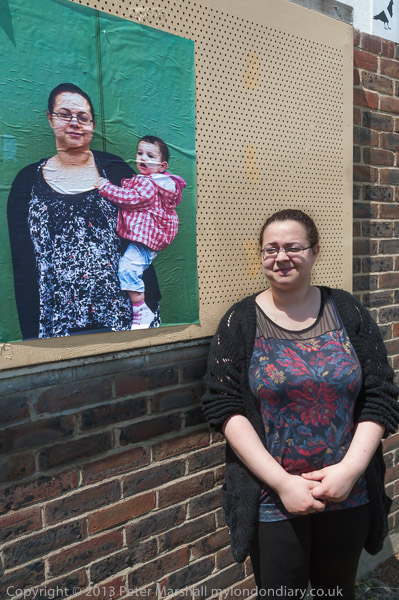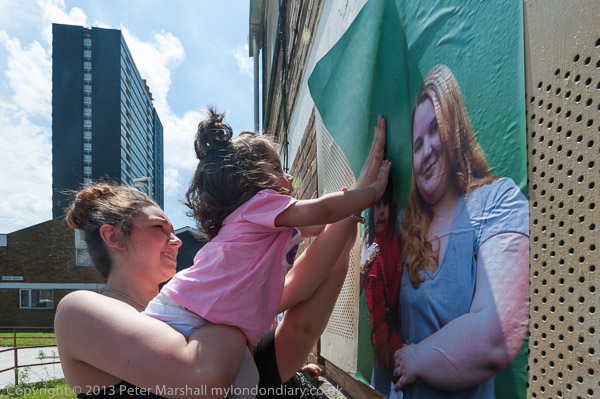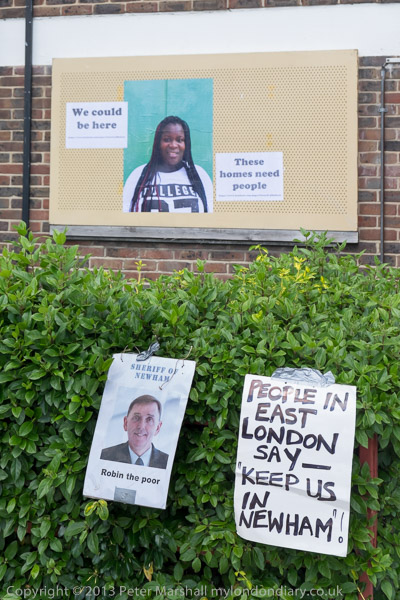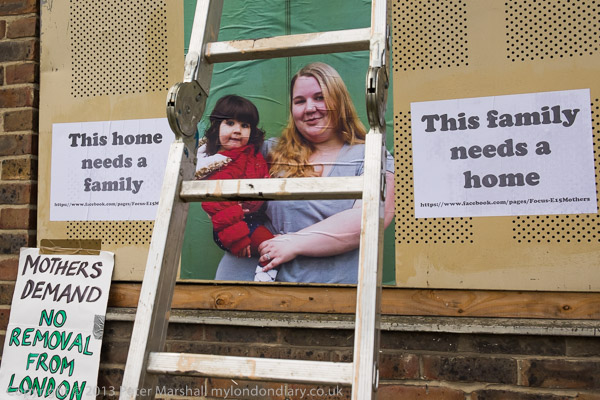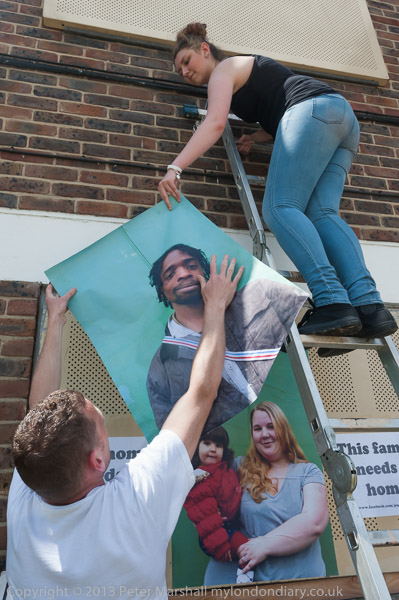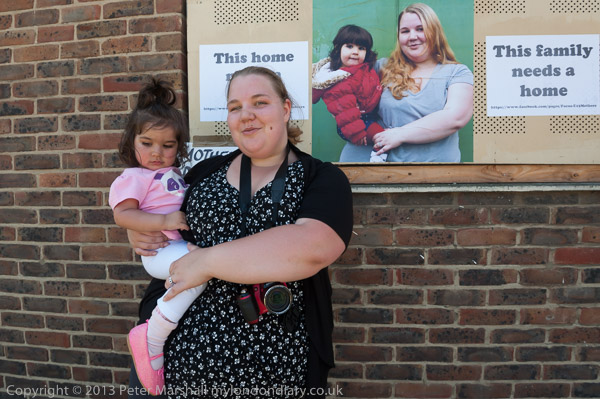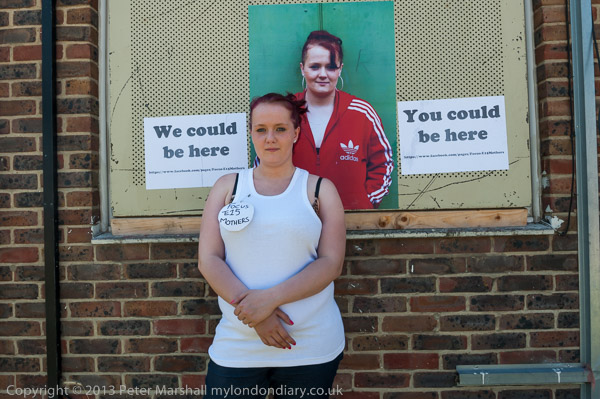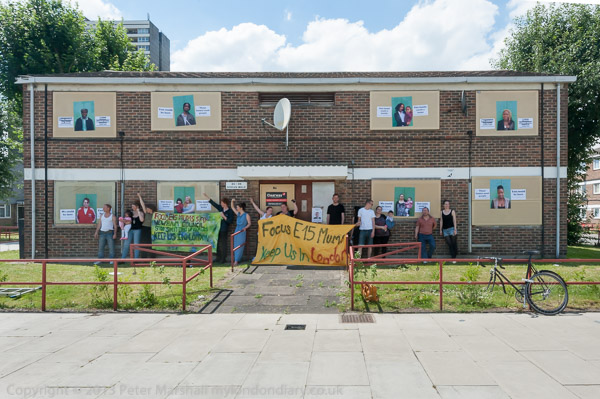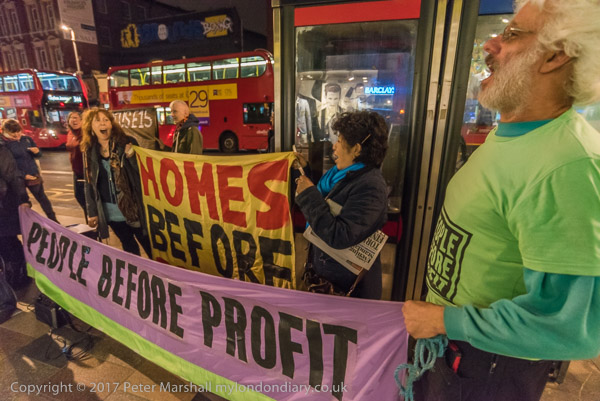
Lung Theatre ‘E15’ Battersea March: Thursday 16th March 2017 was a rather unusual day for me in that rather than photographing a protest I was being part of a theatrical performance, though not in a theatre but on the busy evening rush hour streets of Battersea.
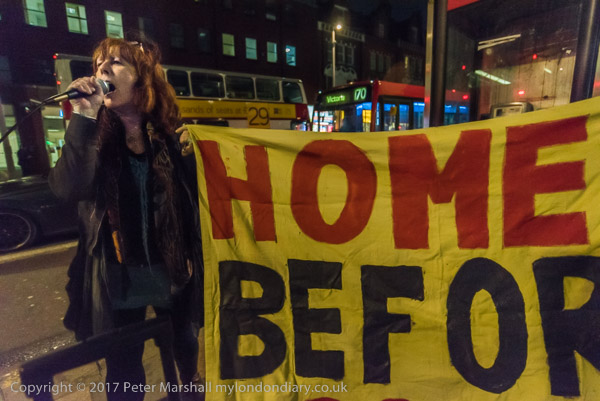
But like many of the others there, I was playing myself as a photographer of protests, and taking pictures as I would if this had been a real protest.
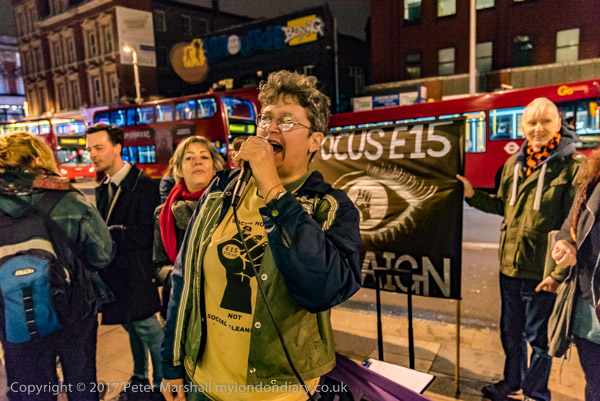
This performance was to announce that Lung Theatre, a small theatrical group, were bringing their Edinburgh festival award-winning performance ‘E15’ to Battersea Arts Centre, and they were doing so with the help of many of the housing protesters, particularly from the Stratford-based Focus E15 campaign, on which their ‘verbatim theatre’ performance was based.
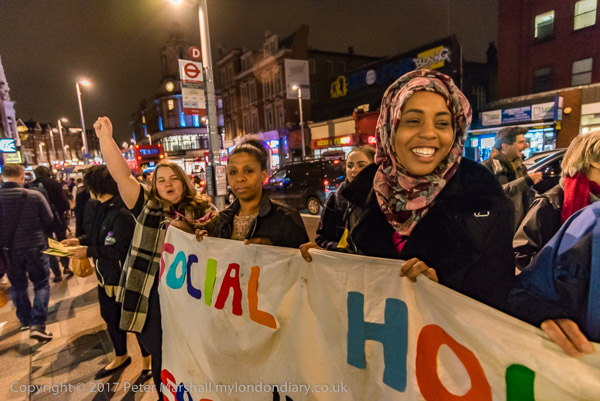
An interesting article, Documentary & Verbatim Theatre by Tom Cantrell of the University of York gives a clear definition, “Verbatim theatre is a form of documentary theatre which is based on the spoken words of real people. Strictly, verbatim theatre-makers use real people’s words exclusively, and take this testimony from recorded interviews.”
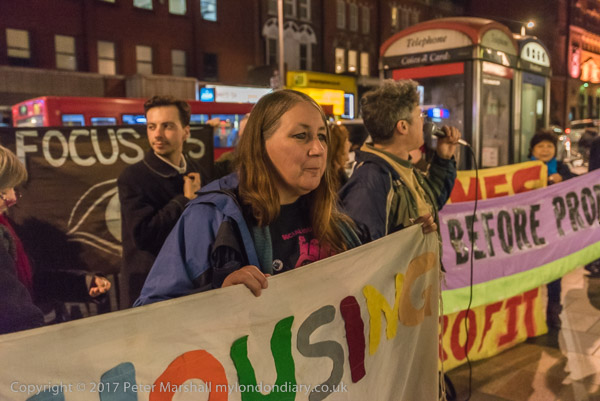
The “protest” began in the rather dim light of the street outside Clapham Junction’s busiest entrance, and it was hard for me to distinguish the actors from the housing protesters by their speech and actions, though rather easier in that they were the only faces I didn’t recognise, having met and photographed the activists so often at previous events. But the group certainly put on a convincing performance as they handed out leaflets and fliers, both about the Focus E15 campaign and their forthcoming performances at the Battersea Arts Centre.
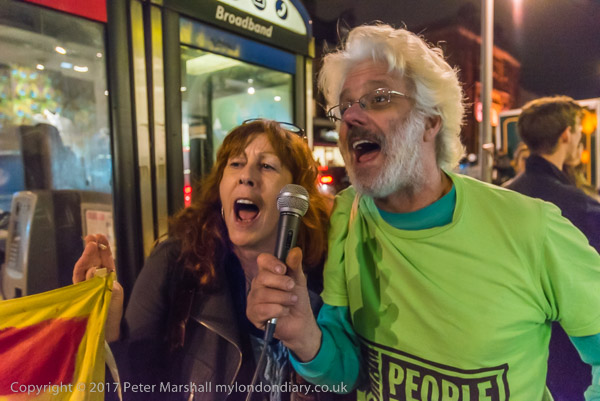
Focus E15 began when a group of young mothers housed in the Focus E15 hostel in Stratford were told that Newham council were going to evict them and they would be dispersed not just in the borough but to rented accommodation across the country in far away places where they had no friends, no family and away from any jobs, schools, familiar services and support.
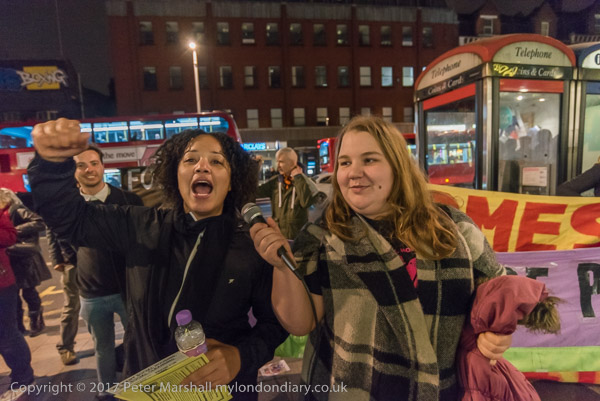
Newham had adopted a policy which amounted to social cleansing, removing people from its area who, as the then Mayor put it, could not afford to live there. Rather than accept this they came together to fight the council, and inspired others across the country to fight for ‘Social Housing NOT Social Cleansing’.
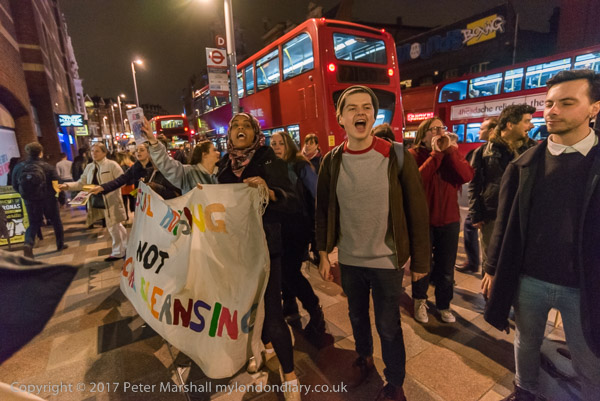
And Focus E15 won their fight but didn’t stop there, continuing the fight for others in the area faced with homelessness and eviction, demanding the council bring empty council housing back into use in a campaign for ‘Housing For All’. They are still out on Stratford Broadway with a street stall every Saturday, still forcing the council to face up to its responsibilities despite considerable harassment (and more recently a change of Mayor.)
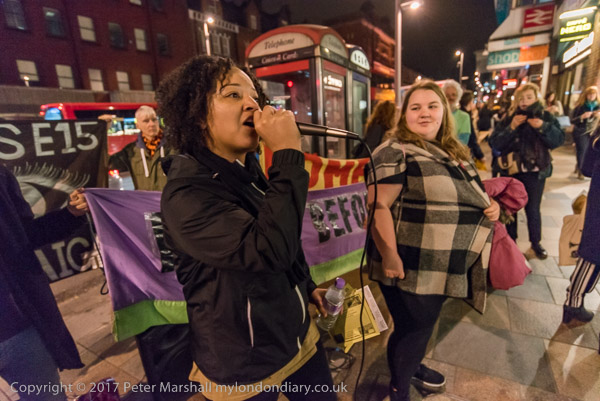
As well as some of the leading activists from Focus E15 at the eevent were also other campaigners including some from Sweets Way in north London and Lewisham People Before Profit and others fighting the demolition of council housing by London’s mainly Labour controlled councils, increasingly in league with estate agents and property developers scrambling for excessive profits from sky-high London market prices. And they had brought some of their banners with them for the event.
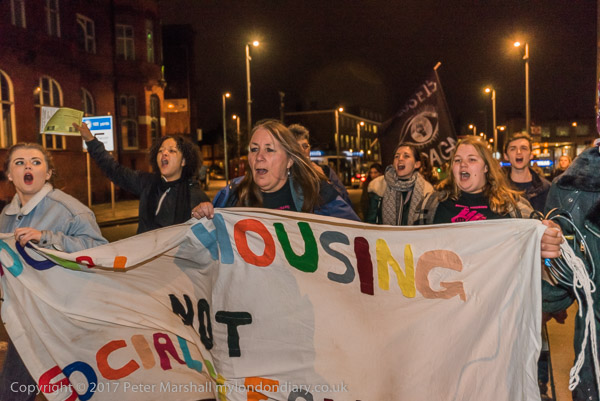
From Clapham Junction the “protesters” marched up Lavender Hill to the Battersea Arts Centre, where they occupied the foyer for a few final minutes of protest in what had been a pretty convincing event. And while actors had to go on stage and give their performance, the activists could sit down in the theatre and watch.
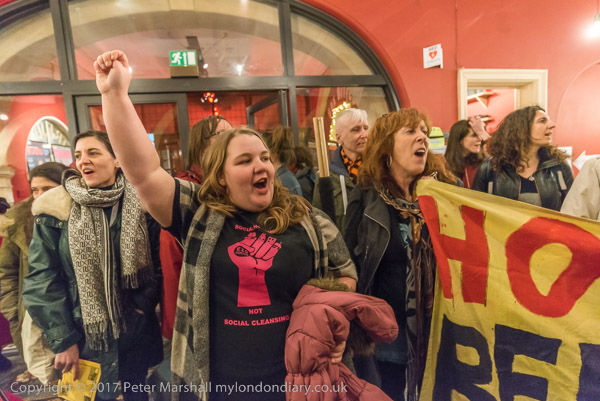
I didn’t join them, as I knew I had to come back to view it a week later and then be a part of a panel discussion Art & Accidental Activism, a week later. It was an impressive performance and gave a real impression of some of the more dramatic aspects of the real protests I had covered and made clear the political aspects of the housing crisis and why activism was necessary. But sometimes it did seem strange to hear words I remembered well coming out of a different person.
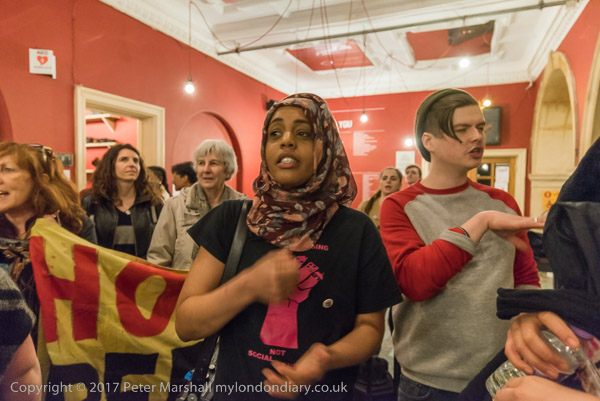
I couldn’t really enjoy it as much as I would have liked as I was very nervous, considerably daunted at having to appear afterwards ‘on stage’ to answer questions with fellow panelists Jeremy Hardy, journalist Dawn Foster and theatre legend Max Stafford Clark. But in the event it went well (my sternest critic says) and I rather enjoyed it and the session in the bar that followed.
More at Lung Theatre ‘E15’ march to BAC.
